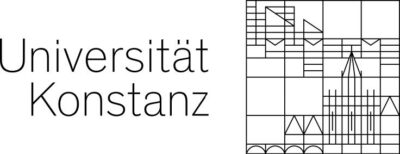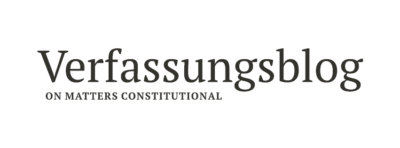Many Right(-wing) Choices
Anyone who followed the local elections in the German state of Thuringia last week only through national media headlines might conclude that the far-right AfD’s anticipated “breakthrough” has “failed to materialize for the time being”, with democratic parties now dividing offices and parliamentary seats among themselves. However, the notion of a setback for the far-right spectrum is deceptive. The AfD’s result in the 2024 district and city council elections increased significantly from 17.7% in 2019 to now 25.8%. The media’s underreporting of the gains made by extreme right-wing parties illustrates how the AfD is increasingly establishing itself as a significant force in the party system. Contrary to the widespread sigh of relief suggesting otherwise, this development is a concerning start to the German super election year, which features European elections, state elections in three Eastern German states, as well as local elections in nine states.
The development is also dangerous. The normalization of the AfD is indeed progressing, with its far-right agenda increasingly infiltrating the mainstream. The so-called “firewall”, or cordon sanitaire, meant to exclude the far-right, is already more tenuous at the municipal level than at the state or federal level. It will not withstand the new majorities in district and city councils everywhere.
However, democracy in Thuringia has not yet been lost. As things stand, the centre-right CDU has secured the most district administrator (Landrat) and mayoral positions, with the majority of Thuringians voting for democratic parties. In Weimar, for example, Peter Kleine (CDU and the “weimarwerk” voter alliance) was able to defend his office without a runoff election. The CDU is the strongest force in the city council, with the AfD trailing behind the Left Party at 13.7 percent. The city council is, therefore, still able to pass resolutions without the AfD. However, the situations in Thuringia’s bourgeois Weimar and the student city of Jena remain exceptions.
The AfD has now become the strongest force in nine of the 22 district and city councils, and holds the second most seats (following the CDU) in eight councils. Considering the scandals that have accompanied the AfD’s election campaign in recent weeks, this is a clear sign of its increasing normalization. This trend is particularly notable given the AfD’s lack of locally known candidates with proven experience in top municipal offices. In local elections, voters frequently choose people, not parties. They are subject to different logics than state and federal elections.
While it is good news that the AfD has not yet succeeded in capturing top municipal positions in the state, several run-off elections are still pending. Contrary to expectations, these final ballots will not be particularly unpleasant where the AfD is in the run-off, but in municipalities where two centrist candidates compete. In Gera, a city in the state’s east, Julian Vornarb (neutral, formerly CDU) and Kurt Dannenberg (CDU) are in a run-off for the mayor’s office. Incumbent Vonarb is unlikely to garner new votes from the left or center against his CDU competitor. Dannenberg, on the other hand, needs the voters whose first choice were the candidates of the AfD or “Miteinanderstadt”, an association led by neo-Nazi Christian Klar. Klar is calling on his supporters to vote for the CDU candidate. With Vonarb and Dannenberg head-to-head in the first round, the extreme right’s voters will determine who occupies the town hall in the end.
++++++++++Advertisement++++++++


Akademische*r Mitarbeiter*in (Early Postdoc) (Vollzeit, E 13 TV-L) Kennzahl 2024/120. Die Stelle ist zum 01.10.24 zu besetzen und bis 30.09.27 befristet. Die Stelle ist grundsätzlich teilbar. Die Stelle ist am DFG-Graduiertenkolleg, Fachbereich Literatur-, Kunst- und Medienwissenschaften, angesiedelt. Wir freuen uns auf Ihre Bewerbung mit den üblichen Unterlagen sowie ein ca. 15-seitigen Exposé eines an das Graduiertenkolleg inhaltlich anschließenden Forschungsprojekts bis zum 30.06.24.
Die Stellenausschreibung finden Sie hier. Hier geht es zum Bewerbungsportal.
++++++++++++++++++++++++
Whether Dannenberg or Vornarb assumes office, the winner’s tenure will be challenging. With 15 seats, the AfD is (once again) the strongest force in the city council of Gera. The remaining 27 seats are shared by eight parties and electoral alliances. All democratic parties, except the CDU, lost seats. Because there were many “right”(-wing) choices and diminished support for left-wing parties, the city council has become politically unbalanced. Excluding the far-right party from decision-making processes is becoming difficult, if not impossible. The firewall has long been crumbling, but now you can hear the bulldozer approaching.
In Eisenach, Patrick Wieschke, the leader of the extreme right “Heimat” party (formerly the NPD, a neo-Nazi party), recently released from prison and with multiple criminal convictions, has joined two of his party colleagues on the city council. The AfD and “Die Heimat” hold as many seats as the Left, SPD, and Green parties combined. It is true that the democratic parties and voter alliances could still find a majority without the AfD and “Die Heimat”. But perhaps the new members of Eisenach’s City Council seek crossbench cooperation? After all, their decisions are about local concerns, in which ideological divides often play a subordinate role. If the AfD and “Die Heimat” want to campaign for the protection of the Hörsel river in Eisenach – as does the CDU – why not pursue this goal together? Why not show that politics is still functional at the municipal level, the “cradle of democracy”?
Some CDU district associations have been ambiguously engaging with the far right, avoiding clear boundaries. Last year, Michael Brychcy, the former mayor of Waltershausen and president of the Thuringian Association of Towns and Municipalities, endorsed cooperation with the AfD. The lists for the local elections also show that the CDU’s incompatibility resolutions –which forbid its functionaries to work with both the post-communist Left party as well as the AfD – are easier circumvented in municipal politics than at the state level. For example, Frank Böwe, an independent politician, now represents the AfD in the Wartburg district council while simultaneously sitting with the CDU in Ruhla town council. In Eisenach, an AfD member elected to the town council had left the CDU just this year, after drawing the attention of the Office for the Protection of the Constitution, Germany’s domestic intelligence service, last year. Thus, the CDU’s incompatibility resolution on cooperation with the AfD and the Left Party in Thuringia is increasingly relaxed at the municipal level but only concerning the right.
The apparent victory for the CDU over the AfD, as portrayed in recent national reporting, feels hollow at the grassroots level. It would be short-sighted to interpret the Thuringian local elections as a direct predictor of the upcoming state elections, as local dynamics differ significantly. However, the local level is crucial for mobilizing voters and shaping community life. The declining support for left-wing parties emboldens the far right. Let’s not forget that Thuringia is home to politically engaged citizens who are already concerned about their safety. The shift to the right is infiltrating both politics and society. Although far-right voters remain a minority, they are a growing minority. Democratic parties, still in the majority, must collaborate with civil society to develop solutions to halt this shift to the right.
*
The Week on Verfassungsblog
The Rafah-order of the International Court of Justice has left academics, journalists, lawyers and even the Judges themselves arguing over what it means. There are multiple interpretations of this part of the Order doing the rounds, predominantly based on the placement of the commas and the use of the word “may”. JULIETTE MCINTYRE argues: if we reflect on the Court’s methods of decision making, it appears that in this instance the Court may have been driven by a desire to convince as many Judges as possible to vote in favour of the Order, at the cost of issuing a clearer and more straightforward directive. However, while consensus can be a useful thing, this would have been the time for a clear and unambiguous order, even if it meant fewer votes in favor.
In Europe, the major online platforms are moving towards implementing the Digital Services Act. DANIEL HOLZNAGEL has traced in detail how platforms such as TikTok are primarily pursuing their own interests and not really improving the legal position of European users.
Political statements in assemblies are currently the subject of intense public discussions in Germany. In particular, positions and slogans aimed at denying the right of existence of the State of Israel are being used as a reason for administrative interventions through “conditions” related to the content and statements made during assemblies, or even for their dissolution. THORSTEN KOCH explains why this is a concerning development and why even questionable opinions do not justify the authority to intervene against assemblies.
Over the past week, the French electoral reform in New Caledonia precipitated into violent unrest, resulting in the deaths of seven individuals, hundreds of arrests, and extensive damage to buildings, infrastructure, and vehicles. Although the French government lifted the state of emergency in an attempt to initiate a process of de-escalation and to renew the dialogue with the independence movement, the reform will eventually move forward. JULIAN SCHRAMM explains the conflict between Kanaks and Caldoches and anticipates that France will likely further entrench its influence in the South Pacific and effectively deny the Kanak people to achieve their desired self-determination.
On the contrary, PIERRE-EMMANUEL RODRIGUEZ offers a different assessment. He sees the electoral reform as a blessing in disguise, guaranteeing a better representation of the population of New Caledonia and thereby the right to vote more widely. Despite the fear that this reform will impact on the Kanaks, the archipelago’s autochthonous people, he sees it in line with the democratic principles of the French Republic.
In mid-May, Germany’s Federal Council approved the new naming law. It was supposed to be “an anti-discrimination law, too”. FRAUKE PÖTTGEN shows why it does not deserve this name – and how it unnecessarily complicates the law instead of simplifying it.
Right-wing parties are a direct threat to racialised people. BERKAN KAYA explains why an AfD party ban would serve to protect them. He is responding to a blog post by Cengiz Barskanmaz, who argued that the debate on banning the AfD is misguided from a racism-critical perspective.
What to do when an authoritarian state government puts the federal constitutional structure to the test? CARL SEEMANN went to the attic of constitutional law to search for the stick in the sack – he found Article 28(3) of the Basic Law.
As things stand, anti-EU parties are expected to make gains in the European elections, thus increasing the risk of parliamentary obstruction in the next legislative period. EVA ISABELL MARTIN analyses how well the European Parliament is prepared for this.
++++++++++Advertisement++++++++

Unser Team wächst weiter!
Wir besetzen die Stelle einer
Wir suchen weitere teamfähige, kreative, temperamentvolle und engagierte Mitstreiter*innen für Demokratie, Rechtsstaatlichkeit und Menschenrechte und freuen uns, von dir zu hören oder zu lesen. Was dich bei uns erwartet, was wir uns wünschen sowie alle weiteren Infos findest du hier.
++++++++++++++++++++++++
RANDALL STEPHENSON‘s “Defamation Primer for the 2024 US Presidential Race” explains the history and principles of US defamation law to help foreign lawyers navigate its many technicalities and often confusing applications. He concludes that caution must be exercised in responding to calls for libel reform in order to understand the multifaceted rationale behind the law and to preserve the essential watchdog role of the press under the First Amendment.
ANDREAS RUCH criticizes the fact that more and more federal states are introducing the Taser as an additional police tool alongside pepper spray, batons, and firearms. He opposes this upgrading for a number of reasons, including the fact that the use of electrical impulse devices in police practice has repeatedly resulted in fatalities. He also argues that officers will use the devices extensively in the future, gradually normalizing a form of significant police force.
MARK ZÖLLER deals with the testing of facial recognition software by the German Federal Criminal Police Office (BKA) following reports by the Bayerischer Rundfunk (Bavarian Broadcasting). He argues that the BKA acted unlawfully because it interfered with the fundamental rights of the people depicted, especially their right to informational self-determination, without a sufficient basis for authorization. Zöller also addresses a more general problem: the security authorities repeatedly misjudge the scope of (fundamental) data protection rights or ignore the requirements of the Federal Constitutional Court’s case law.
MARCO MAUER discusses the recent decision of the European Court of Justice on national data retention laws: La Quadrature du Net II. Although the ruling does not overtly contradict its previous case law, the Court applies a lower standard of review when member states retain IP addresses to identify their citizens online. According to Mauer, this encourages member states to try to implement indiscriminate retention regimes for IP addresses and other categories of personal data in the future. It seems, Mauer argues, that the Court is slowly but surely abandoning its role as guardian of the right to privacy and allowing governments to collect vast amounts of data on their citizens in order to solve minor crimes.
New Blog Symposium: Unboxing the New EU Corporate Sustainability Due Diligence Directive
Companies in Europe have been legally obliged to respect human rights and the environment during their business operations due to the final positive vote in the European Council on the Corporate Sustainability Due Diligence Directive (CSDDD). The Directive now forms part of a global effort of Business and Human Rights enthusiasts to establish mandatory human rights due diligence obligations for companies. In cooperation with the German Institute for Human Rights, in this Symposium FRANZISKA OEHM explains how this directive binds companies in Europe to human and environmental rights. In this context CAROLINE OMARI LICHUMA compares the Article 13 meaningful engagement provisions of the recently adopted EU CSDDD to similar provisions in the national due diligence laws. While ANTON ZIMMERMANN breaks down how Art. 29 para. 3 CSDDD seeks to address the procedural problems that come with enforcing the CSDDD´s private law liability regulations, NICOLAS BUENO and FRANZISKA OEHM look at Article 29´s functionality to provide a right to remedy for the affected individuals and legal clarity for the companies. MARKUS KRAJWESKI on the other hand assesses the CSDDD’s provisions on administrative enforcement from a human rights perspective. A Comparative Analysis by CLAIRE BRIGHT, CELINE DA GRACA PIRES, MICHAELA STREIBELT and DANIEL SCHÖNFELDER also discusses the most important changes that CSDDD will bring for the respective mandatory human rights and environmental (HREDD) legislation in Germany and France. Finally, MATHILDE DICALOU and GABRIELLE HOLLY explore how National Human Rights Institutions can leverage their unique mandate as human rights experts to ensure that transposition laws meet human rights standards for an effective implementation.
That’s all for this week. Take care and all the best,
the Verfassungsblog Editorial Team
If you would like to receive the weekly editorial as an email, you can subscribe here.



